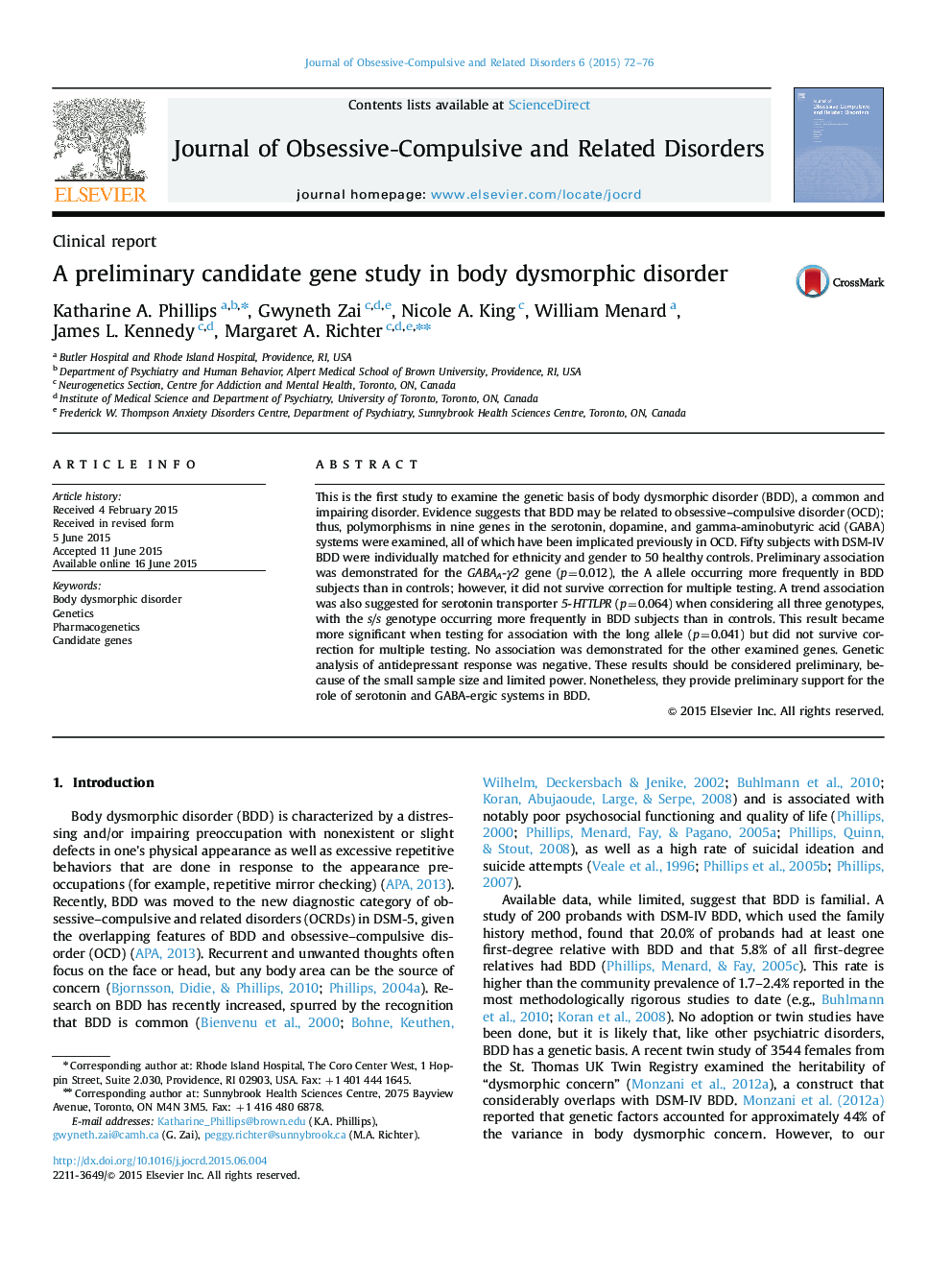| Article ID | Journal | Published Year | Pages | File Type |
|---|---|---|---|---|
| 912228 | Journal of Obsessive-Compulsive and Related Disorders | 2015 | 5 Pages |
•Body dysmorphic disorder (BDD) is an often-debilitating obsessive–compulsive and related disorder that likely has, in part, a genetic etiology.•To date, this is the first genetic and pharmacogenetic study in BDD.•The results implicated the role of serotonergic and gabaergic system genes in BDD.•Drug response analyses were negative, although statistical power was limited.•Larger and more homogeneous BDD samples are warranted to further explore the genetic contribution to this disorder and pharmacogenetics of antidepressant response.
This is the first study to examine the genetic basis of body dysmorphic disorder (BDD), a common and impairing disorder. Evidence suggests that BDD may be related to obsessive–compulsive disorder (OCD); thus, polymorphisms in nine genes in the serotonin, dopamine, and gamma-aminobutyric acid (GABA) systems were examined, all of which have been implicated previously in OCD. Fifty subjects with DSM-IV BDD were individually matched for ethnicity and gender to 50 healthy controls. Preliminary association was demonstrated for the GABAA-γ2 gene (p=0.012), the A allele occurring more frequently in BDD subjects than in controls; however, it did not survive correction for multiple testing. A trend association was also suggested for serotonin transporter 5-HTTLPR (p=0.064) when considering all three genotypes, with the s/s genotype occurring more frequently in BDD subjects than in controls. This result became more significant when testing for association with the long allele (p=0.041) but did not survive correction for multiple testing. No association was demonstrated for the other examined genes. Genetic analysis of antidepressant response was negative. These results should be considered preliminary, because of the small sample size and limited power. Nonetheless, they provide preliminary support for the role of serotonin and GABA-ergic systems in BDD.
